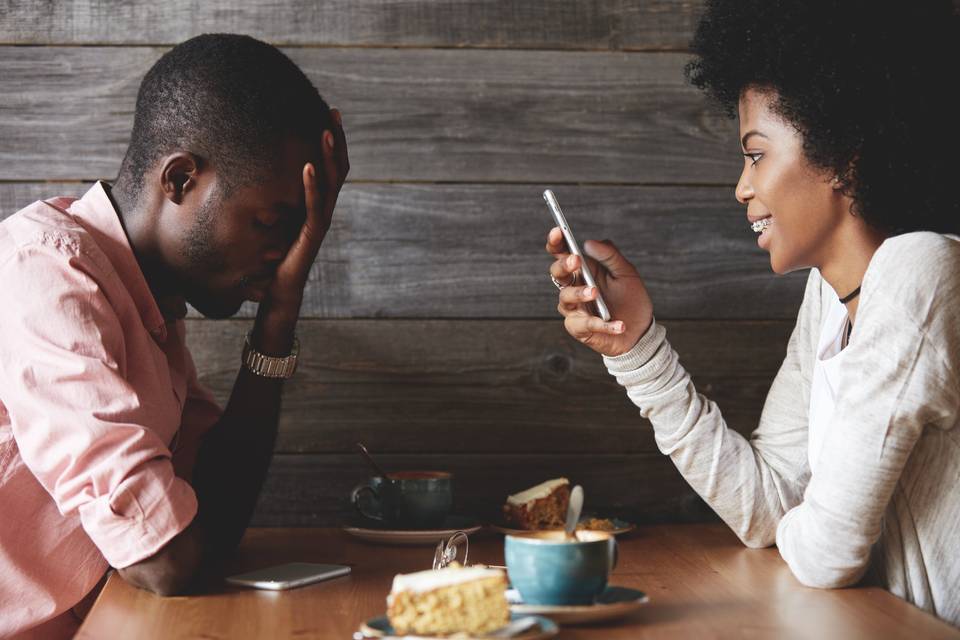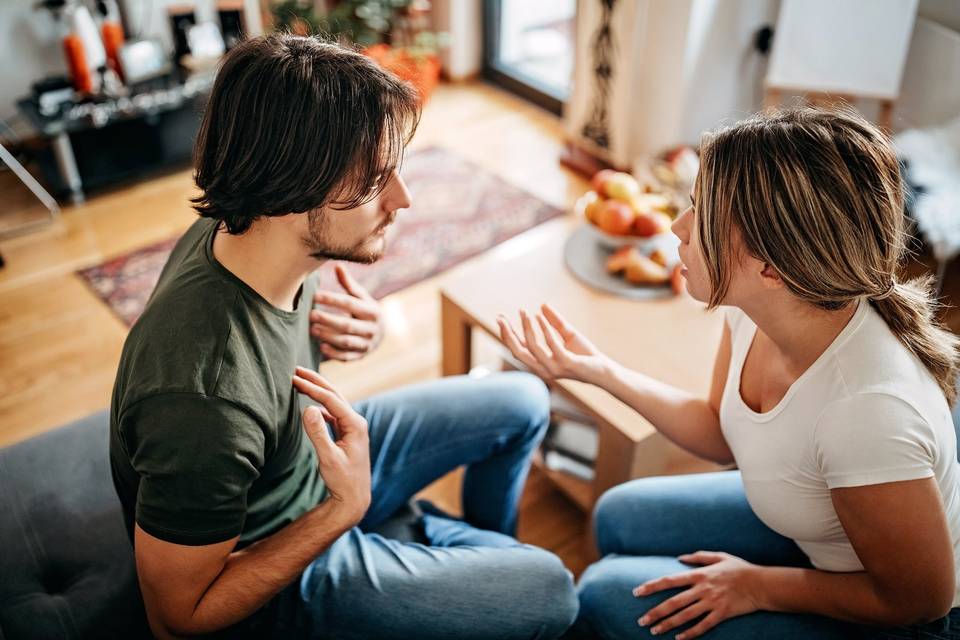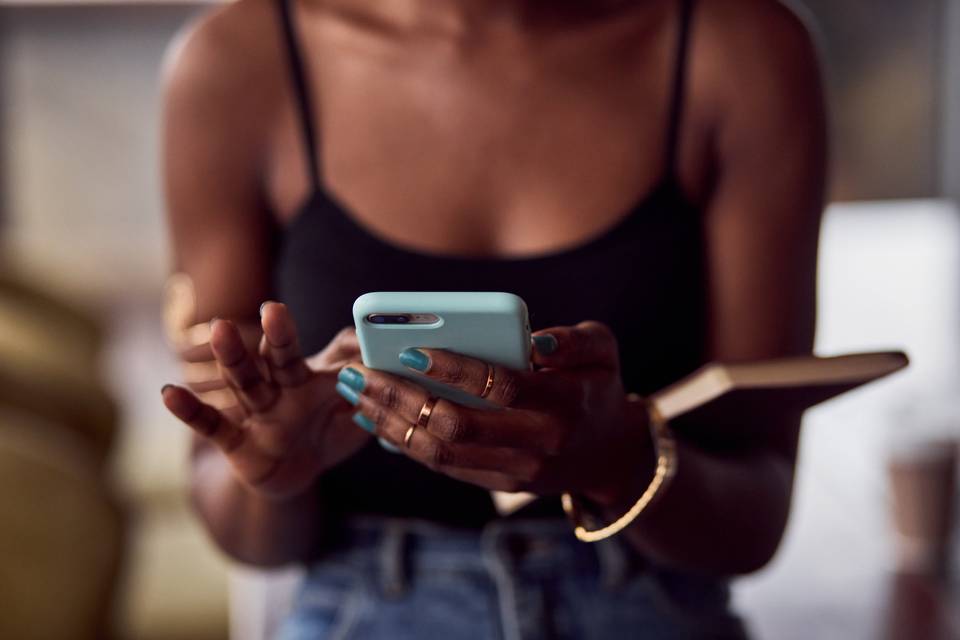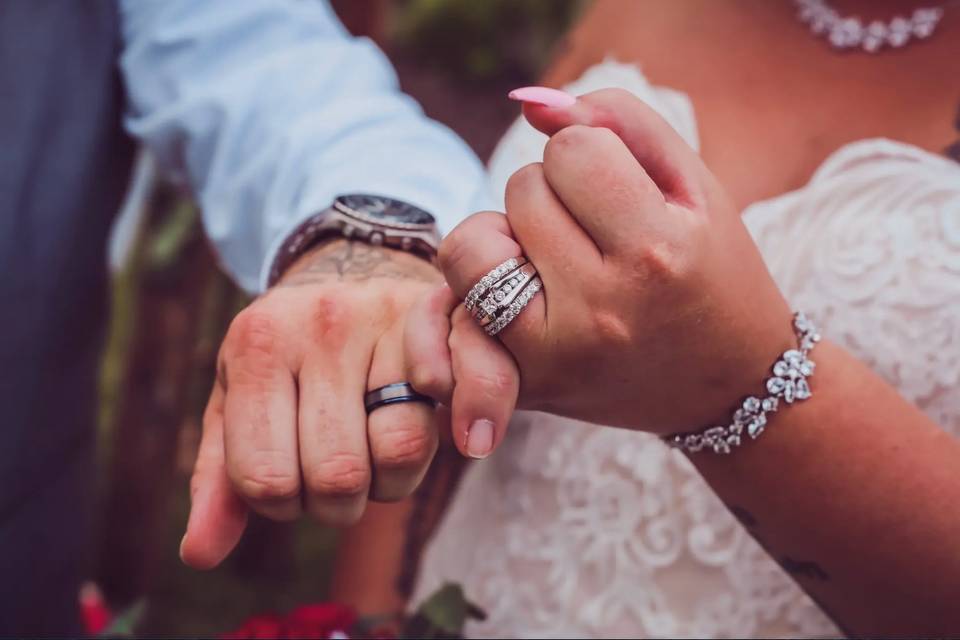Is "Phubbing" Ruining Your Relationship?
If your phone is your constant sidekick, this is a must-read.


Whether you’ve been in one romantic relationship in your entire life or several, you’ve probably experienced your share of relationship drama. After all, no two people are perfect, nor is any one single relationship—and it’s normal to fight once in a while. But while you might put your best foot forward in many areas of your relationship, one area that you may be lacking in has to do with an unsuspecting device: your smartphone.
It’s a habit known as “phubbing,” and it describes the act of essentially snubbing, or ignoring, your partner and instead focusing solely on your phone. As Marisa Cohen, Ph.D., M.F.T., relationship researcher, psychology professor and therapist, points out, phubbing is incredibly detrimental to relationships, as those who are being phubbed may feel as if they are not being valued, heard, or understood.
While it might not feel like it, phubbing is basically the same thing as sitting on a couch and talking to one person who is not your significant other without ever breaking focus to include your partner in your conversation. Rude, right?
Phubbing isn’t usually intentional, but rather an impulse behavior and a symptom of mobile and often internet and/or social media addiction, notes Marriage and Family Therapist, Roxanne Nowak. “Loss of control is a commonly reported feeling of both the person phubbing and of the person who is being phubbed, however it has been shown to cause conflict in relationships and, in turn, a decrease in marital satisfaction,” she says. “As human beings we have a natural desire to feel connected to others, so when the person we are trying to engage with is paying more attention to their phone than us, this can cause us to question our significance in that person's life.”
It’s clear that phubbing is no good for your relationship, but just how bad is it? Here, experts share some of the specific ways your relationship could be negatively affected by phubbing.
It sends a message of a lack of respect.
When one partner is phubbing the other, it signals that your time together is not valued. “There might be times you have planned a date together and, while you both are at the dinner table engaging in a very exciting conversation, your phone goes off causing an interrupt in the conversation,” says Kiara Luna, L.M.H.C., psychotherapist in private practice. “Now your partner feels alone, dismissed, and as if what was being discussed was not valuable enough to need your full attention.”
To avoid this, Dr. Cohen suggests discussing your expectations and creating a signal so that you can let your partner know when you want their attention and active engagement. “This can be either verbal such as ‘let’s put the phones away for a few, ‘or a non-verbal gesture,” she says. “Whatever is agreed upon by you and your partner should signal that it is time to disengage with the phone and be present in the conversation.”
It creates a lack of meaningful conversations.
In order for you and your partner to be able to have deep and meaningful conversations, it’s vital that you are both present—not just physically, but emotionally as well. “If, at any point, your partner feels like you are not really in the moment, they will feel disconnected and suppress their thoughts, feelings, and emotions as they feel that whatever they are sharing is not as important to you,” says Luna.
It can hurt your partner’s mental health.
Your simple social media scrolling might be making your partner feel inadequate, or not enough, which may, in turn, impact their mental wellbeing. “Phubbed people feel excluded, unimportant, and ostracized, as sustained exclusion can lead to individuals questioning their self-esteem and sense of belonging, ultimately messing with their mental state, says Rachel Sommer, Ph.D., a clinical sexologist and and co-founder of My Sex Toy Guide. When you make your partner a priority over your smartphone, they feel important, which can boost their self-esteem.
Bottom line: It’s true that we’re living in a technology- and media-saturated world that is demanding our attention around the clock. But how we choose to respond to this demand is up to us—and whether or not we are willing to watch relationships crumble in the midst of it all is too. Luna recommends making a plan with your partner as to how phones will be managed. “Perhaps, think of moments when you know you want to spend quality time and phones must be put away,” she says. “At times, when there are scheduled calls during moments you are sharing quality time with your partner, inform your partner of this in advance, this way; your partner feels considered and valued.”





